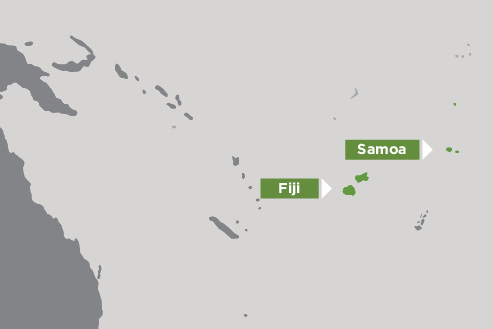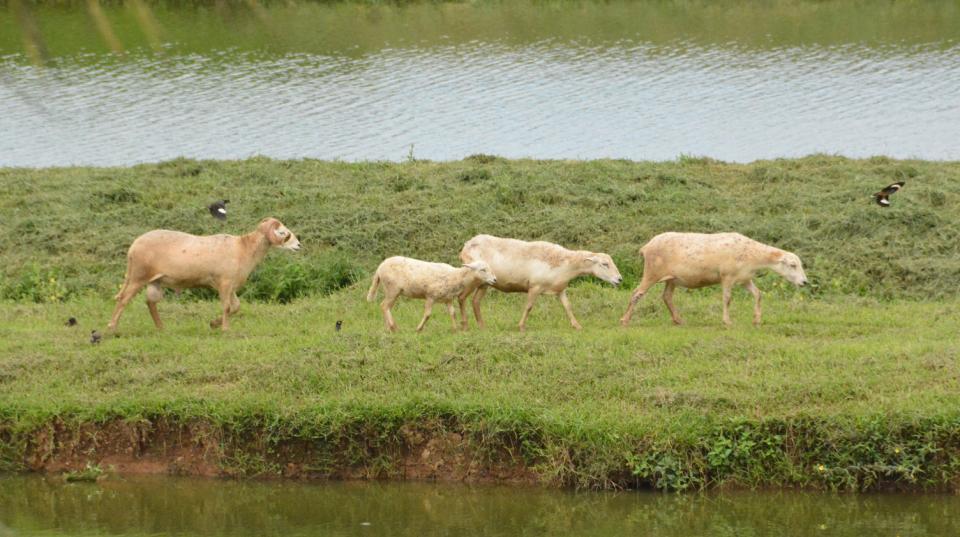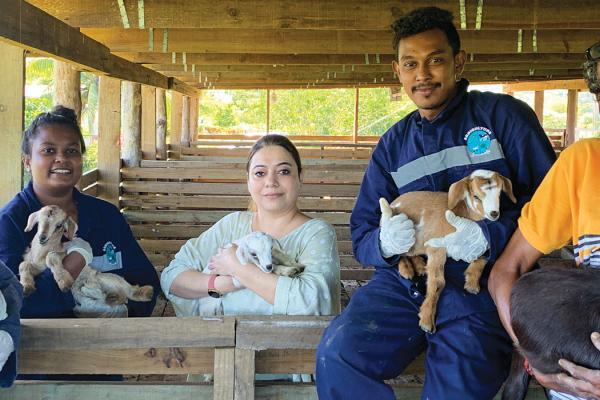Overview
This project is based on from the SRA LPS/2016/021 Assessment of Markets and Production Constraints to Small Ruminant Farming in the Pacific, which aimed to understand current small ruminant (SR) production and marketing, the demand for SR meat, and to identify the current institutional support and research needed for developing profitable smallholder SR production in key Pacific Island Countries (PIC).
Small ruminants (sheep and goats, SR) are an entry point into livestock ownership, with potential as regular income producing enterprises for the rural poor in developing countries. Fiji and Samoa both have large demand for SR meat for domestic consumption and cultural uses, and large numbers of poor farmers for whom SR farming is an important livelihood strategy. Nevertheless, production and marketing systems for SR and their meat in Fiji and Samoa are performing below potential in terms of animal productivity and engagement with higher value market chains.
The SRA found among the PIC, Fiji and Samoa have the strongest demand for sheep and goat meat, government support for the industry, growing sheep and goat populations and the potential for productive grazing livestock systems.
The retail market in particular represents a huge opportunity for smallholders and semi commercial farmers in both countries via import substitution. This opportunity, combined with strong government support and confidence of farm investors, suggests that both of these countries are likely to benefit from further development investment targeting the SR sector.
Summary of outcomes to date
2021–22
- 6 project officers across Fiji and Samoa have been hired, trained in several different areas and are currently supporting the project activities.
- 2project vehicles were liaised with Fijian MOA which provide the team flexibility and independency to complete the work activities.
- A series of 9 FGDs were conducted in several locations of Viti and Vanua Levu in Fiji and the information obtained in those has been used to elaborate the GESI recommendations for the project.
- The baseline survey was completed in Samoa covering a total of 50 farmers. A summary of the findings was presented during the AAAS conference 2022 by one of our Project Officers.
- The baseline survey in Fiji was initiated but not completed given the urgency in initiate the other research activities. So far, 17 farmers out of 150 (target) were surveyed. A summary of the findings was presented during the AAAS conference 2022 by a PhD student.
- A large on-farm trial testing the efficiency of several anthelmintic drugs (n=6) was initiated in February 2022 and is currently being finalised. The trial included 12 commercial farms and enrolled 535 small ruminants.
- The on-farm monitoring programs was implemented in Samoa in 10 commercial farms (5 in Savai’I and 5 in Upolu).
- A large trial to investigate any possible effect of inefficient worm control practices has been initiated in Fiji in six farms in the Western Division. Another 6 farms at the Northern Division will be included in September 2022.
- Several online and face to face trainings were delivered to project officers, MOA and MAF staff on the following topics: Small ruminant husbandry, data collection, grazing management, farm economics, excel, animal welfare and gender equality.
- Social media platforms (Facebook & Instagram) were created to promote project activities and disseminate technical recommendation to farmers.






